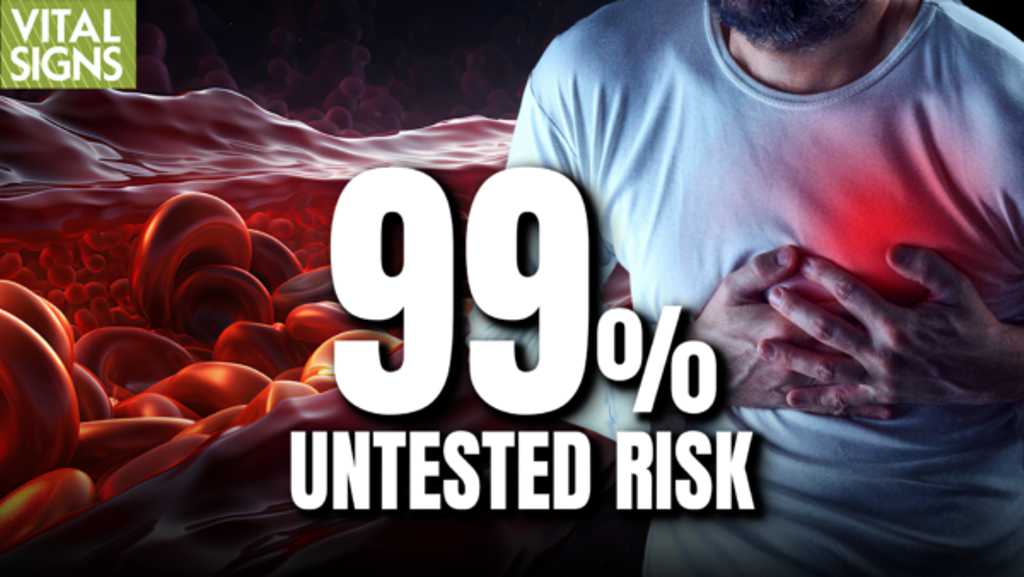Heart attack is the leading cause of death in the United States. Death due to stroke ranks number five. Both are worst-case scenarios for someone with cardiovascular (or heart) disease, which is commonly caused by plaque buildup in the arteries, or atherosclerosis.
The purpose of having our cholesterol tested is to gauge our atherosclerosis risk because certain cholesterol-carrying particles—like LDL, or ‘bad cholesterol’—lead to plaque formation.
But does the standard test of our LDL level give us a full picture of our heart disease risk? What about the danger posed by its related particles that can also cause plaques to form?
On Vital Signs with Brendon Fallon, cardiologist Dr. Seth Baum reveals a more reliable measure of cholesterol-related heart disease risk. He also highlights the cholesterol-carrying particle that is dangerously high in twenty percent or more of the population, yet commonly goes unchecked.
Dr. Baum is one of a handful of heart doctors in America who are board certified in clinical lipidology, which deals specifically with lipids like cholesterol and their effect on the body.
He joins Vital Signs to paint the broader picture of lipid-related heart disease risk and to highlight the advanced blood-filtering method he oversees in his practice in Boca Raton, Florida to manage that risk.
Dr. Baum is a clinical affiliate professor of medicine at Florida Atlantic University College of Medicine. He is also president of the American Society for Preventive Cardiology.









